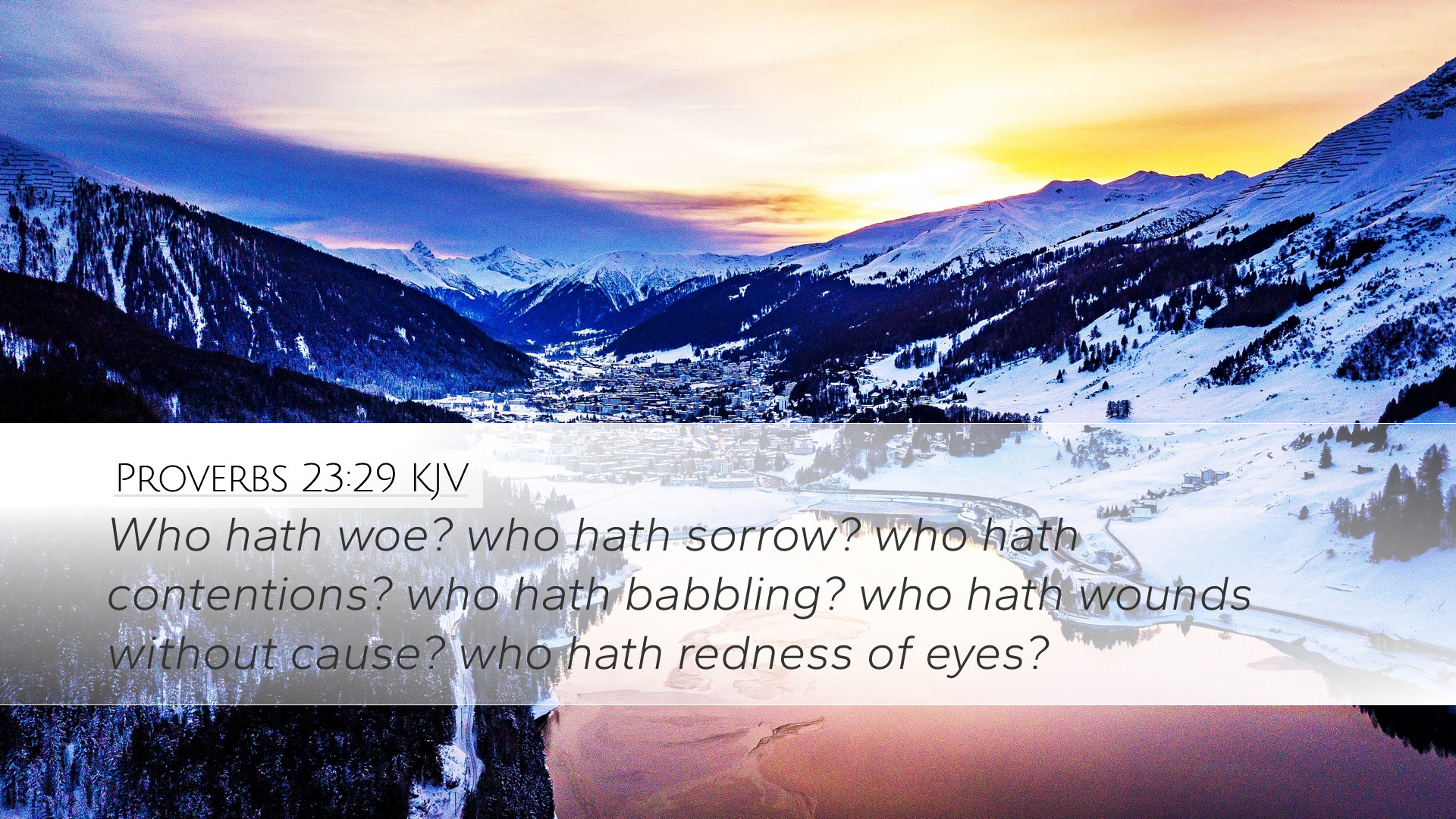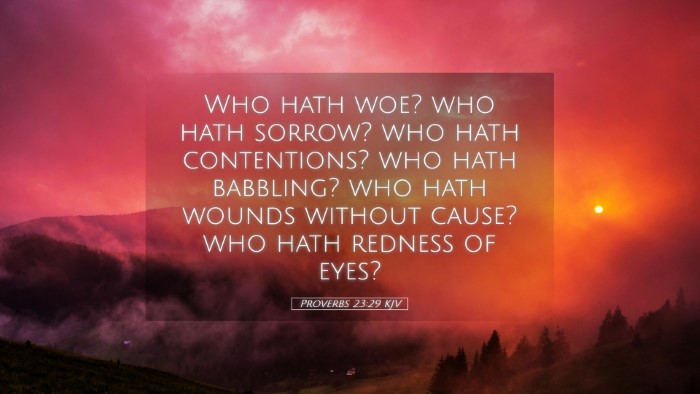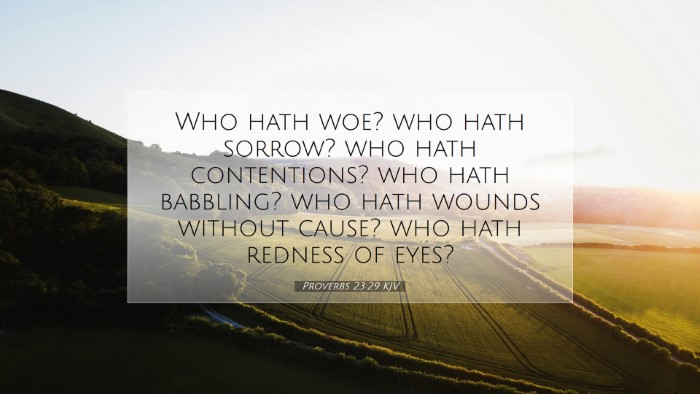Commentary on Proverbs 23:29
Proverbs 23:29 reads: "Who has woe? Who has sorrow? Who has contentions? Who has complaints? Who has wounds without cause? Who has redness of eyes?"
Introduction
The verse presents a series of rhetorical questions that highlight the detrimental effects of indulgence in wine and strong drink. It serves as an introspective call to evaluate the consequences of such behaviors, and it resonates deeply with the themes of wisdom, warning, and the quest for a virtuous life.
Matthew Henry's Insights
Matthew Henry emphasizes the implications of consuming excessive alcohol in this passage. He notes that the inquiries are crafted to lead the reader to reflect on the true nature of drunkenness and its impact on life.
- Woe and Sorrow: Henry suggests that indulgence leads to distress and emotional pain. The connection between vice and sorrow is a common motif throughout Proverbs.
- Contentions and Complaints: He elaborates that alcohol often fosters strife within relationships and communities. The drinker frequently finds themselves in disputes.
- Wounds Without Cause: This phrase, according to Henry, speaks to the physical harm that sometimes accompanies drunkenness, symbolizing both literal injuries and emotional traumas.
- Redness of Eyes: This detail indicates the physical toll of excessive drinking—it speaks to an appearance that reflects internal degradation.
Albert Barnes' Commentary
Albert Barnes reflects on the character of those who indulge in drink, hinting at the broader social repercussions of such lifestyles. He categorizes the questions as a vivid portrayal of the afflictions stemming from wine.
- The Fragility of Human Experience: Barnes notes that these questions illustrate the human condition, raising awareness of the fragility of life and the inevitability of suffering brought on by poor choices.
- The Social Dimension: He points out that many people are affected indirectly through the actions of those who choose to indulge. These vices disrupt communal harmony and increase societal woes.
- Warning Against Apathy: Barnes warns readers to heed these questions as a cautionary tale—many suffer silently, their wounds hidden behind a facade.
Adam Clarke's Analysis
Adam Clarke offers a linguistic and cultural perspective on the verse. He emphasizes the structure of the Hebrew poetry and its rhetorical effect.
- Literary Devices: Clarke points to the use of parallelism, a common feature in Hebrew poetry that serves to emphasize the pain experienced due to intoxication.
- Warnings Embedded in Society: He posits that Proverbs is essentially a discourse on life’s choices, where social customs of Clarke's time reflect the same struggles readers face today.
- Holistic View on Suffering: Clarke examines that this pain is not merely physical but extends to the spiritual and moral degradation that comes with a lifestyle void of discipline and moderation.
Theological Reflection
The theological implications of Proverbs 23:29 call believers to introspection and accountability. The wise are encouraged to discern the dangers of temptation and the lure of quick pleasures, confirming that true wisdom lies in the avoidance of such traps.
- Call to Righteousness: This verse serves as a reminder of the importance of making choices that align with a godly life, avoiding actions that lead to despair.
- Understanding Consequences: Pastors and leaders are tasked to educate their congregations on the negative implications of alcohol consumption, promoting a lifestyle marked by self-control and spiritual mindfulness.
- Holistic Well-being: Engaging in discussions about mental, emotional, and spiritual health aligns with the essence of the verse. The wounds of life should lead seekers closer to God rather than away from Him.
Conclusion
Proverbs 23:29 serves as a powerful admonition against the dangers of indulgence, inviting readers to recognize the multifaceted suffering that results from such behaviors. The wisdom offered in this verse, coupled with insights from Matthew Henry, Albert Barnes, and Adam Clarke, challenges individuals, communities, and church leaders to reflect on the consequences of their choices and to cultivate lives characterized by wisdom and temperance.


